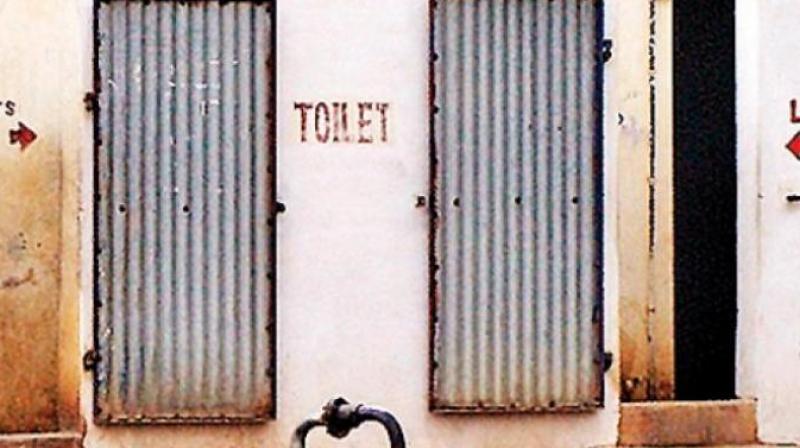Hyderabad: Open urination goes on unabated
Many avoid public toilets for fear of getting infected.

Hyderabad: Despite providing toilet facilities at petrol pumps and commercial establishments, open urination in the city has been increasing at an alarming pace. The Greater Hyderabad Municipal Corporation (GHMC) during a recent survey has identified as many as 1,568 vulnerable points where open urination can be seen every half an hour. Unhygienic toilets and lack of awareness about toilet facilities available have been contributing to the increasing menace in the city.
At present, 329 public toilets of various categories like build-operate --transfer (BOT) toilets, pre-fabricated toilets, Sulabh complexes and 34 she toilets (e-toilets) are accessible for utilisation across GHMC limits. Further, the GHMC has constructed 2135 Individual Household Latrines for the households in slums, who cannot afford to construct their own toilets. Also, community toilets and mobile toilets have been made accessible wherever space constraint was identified.
However, highly placed sources in the corporation said that in order to obtain better swachh rankings in a knee jerk reaction, it had made several temporary arrangements and announced that it had consent from about 259 fuel stations and 257 restaurants across the city, for utilisation of their toilets by the public.
The corporation even claimed that it had set up sign boards indicating toilet facilities at a few locations but they have vanished immediately after the Swachh Survekshan survey. Instead of providing amicable solutions, the corporation has taken up unrealistic campaigns like laati-seeti and garlanding citizens for public urination. In the process, the GHMC has begun to face public ire.
P. Gangadhar Naidu, a resident of Dilsukhnagar said that the public toilet in the area would be a good example of unhygienic and untidy maintenance. He said that the stench emanating from the public toilet was unbearable and was making it difficult to breathe. Since such conditions are prevailing in the area, citizens are forced to urinate in public places.
Meanwhile many are worried about the infections caused by public toilets.
“We cannot step in to any of the public toilets in the city. They are so ill maintained that any one would be infected with the unhygienic conditions prevailing in the public toilets. Specifically toilets maintained in and around Secunderabad are best examples,” Ashish Tiwari, a private employee working near Secunderabad railway Station
Echoing his concern, Guruvinder Singh said that citizens have been clueless about the toilet facilities in fuel stations and commercial establishments.
“If publicised extensively, it would yield better results and public urination would be eventually eradicated from the city,” he added.
A senior GHMC official said that the corporation would construct a few more toilets in the city at a few vulnerable points, where public toilets are not available within a 500-metre radius. He said that the he would conduct a review meeting to discuss the issue in order to provide a permanent solution at the earliest.

